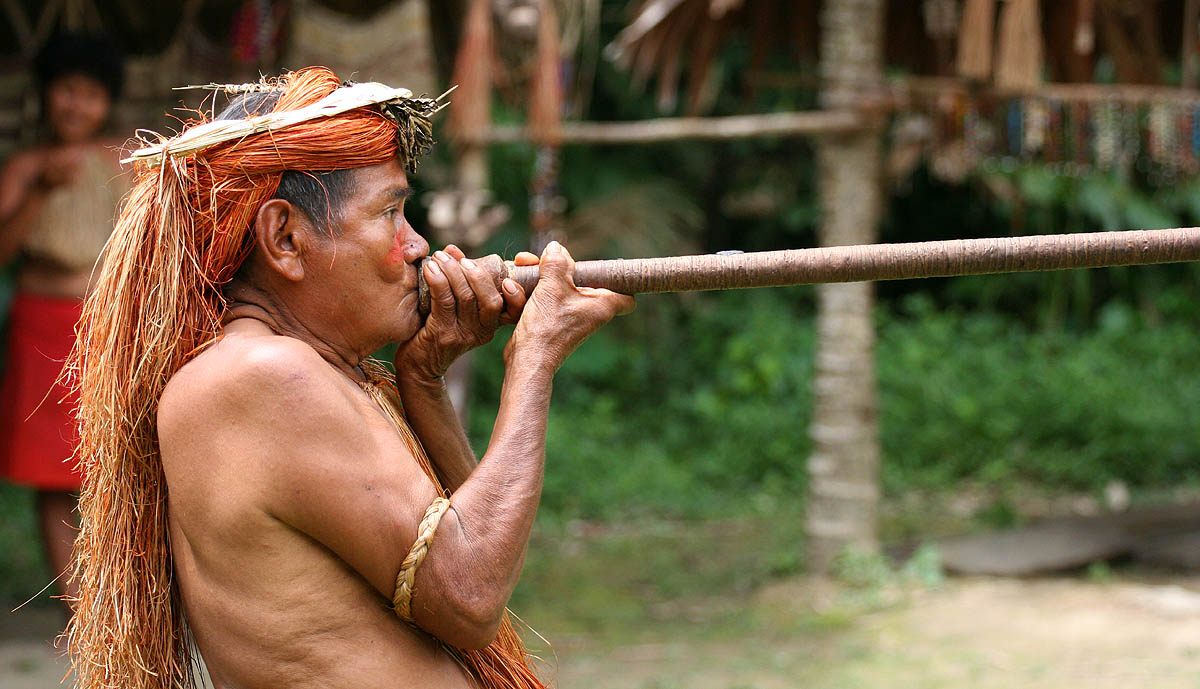The Myth of Primitive Communism
AEON: Today, many writers and academics still treat primitive communism as a historical fact. To take an influential example, the economists Samuel Bowles and Jung-Kyoo Choi have argued for 20 years that property rights coevolved with farming. For them, the question is less whether private property predated farming, but rather why it appeared at that time. In 2017, an article in The Atlantic covering their work asserted plainly: ‘For most of human history, there was no such thing as private property.’ A leading anthropology textbook captures the supposed consensus when it states: ‘The concept of private property is far from universal and tends to occur only in complex societies with social inequality.’

In fact, although some tribes had communal sharing of (some) food, most did not. Private property, far from being unknown, was normal among all hunter-gatherers that have been studied. Manvir Singh writing in Aeon continues:
Agta hunters in the Philippines set aside meat to trade with farmers. Meat brought in by a solitary Efe hunter in Central Africa was ‘entirely his to allocate’. And among the Sirionó, an Amazonian people who speak a language closely related to the Aché, people could do little about food-hoarding ‘except to go out and look for their own’. Aché sharing might embody primitive communism. Yet, Hill admits, ‘the Aché are probably the extreme case.’
…More damning, however, is a starker, simpler fact. All hunter-gatherers had private property, even the Aché….Individual Aché owned bows, arrows, axes and cooking implements. Women owned the fruit they collected. Even meat became private property as it was handed out. Hill explained: ‘If I set my armadillo leg on [a fern leaf] and went out for a minute to take a pee in the forest and came back and somebody took it? Yeah, that was stealing.’
Some proponents of primitive communism concede that foragers owned small trinkets but insist they didn’t own wild resources. But this too is mistaken. Shoshone families owned eagle nests. Bearlake Athabaskans owned beaver dens and fishing sites. Especially common is the ownership of trees. When an Andaman Islander man stumbled upon a tree suitable for making canoes, he told his group mates about it. From then, it was his and his alone. Similar rules existed among the Deg Hit’an of Alaska, the Northern Paiute of the Great Basin, and the Enlhet of the arid Paraguayan plains. In fact, by one economist ’s estimate, more than 70 per cent of hunter-gatherer societies recognised private ownership over land or trees.
Moreover, the sharing that some hunter-gatherers practiced was functional rather than ethical.
Whatever we call it, the sharing economy that Hill observed with the Aché does not reflect some lost Edenic goodness. Rather, it sprang from a simpler source: interdependence. Aché families relied on each other for survival. We share with you today so that you can share with us next week, or when we get sick, or when we are pregnant.
take away the function and the sharing disappeared, often brutally:
In their book Aché Life History (1996), Hill and the anthropologist Ana Magdalena Hurtado listed many Aché people who were killed, abandoned or buried alive: widows, sick people, a blind woman, an infant born too soon, a boy with a paralysed hand, a child who was ‘funny looking’, a girl with bad haemorrhoids. Such opportunism suffuses all social interactions. But it is acute for foragers living at the edge of subsistence, for whom cooperation is essential and wasted efforts can be fatal.
None of this should be surprising to anyone familiar with the property-rights tradition of Demsetz and Barzel. The primitive communism of hunter-gatherers is no different in principle from the primitive communism of the wifi service at Starbucks, the modern day police and fire departments, or the use of Shakespeare’s works. As Barzel put it, “New rights are created in response to new economic forces that increase the value of the rights.” Thus, in this respect, there are no major differences among peoples, only differences in transaction costs, externalities, and technologies of inclusion and exclusion.